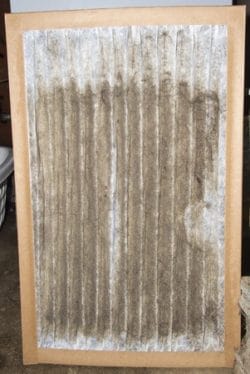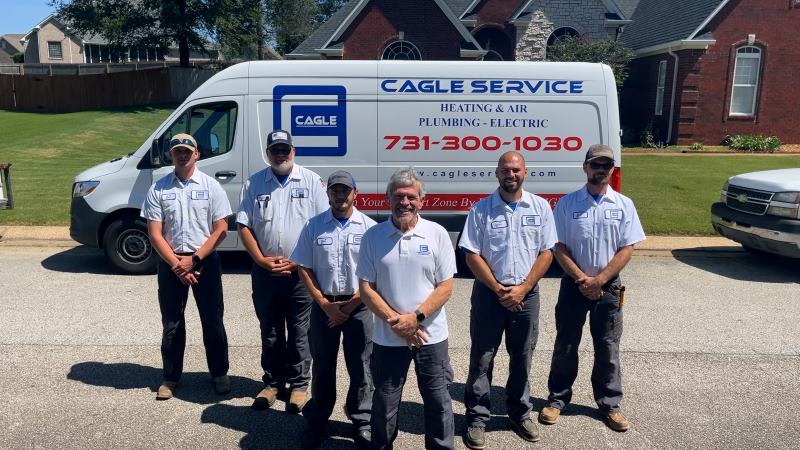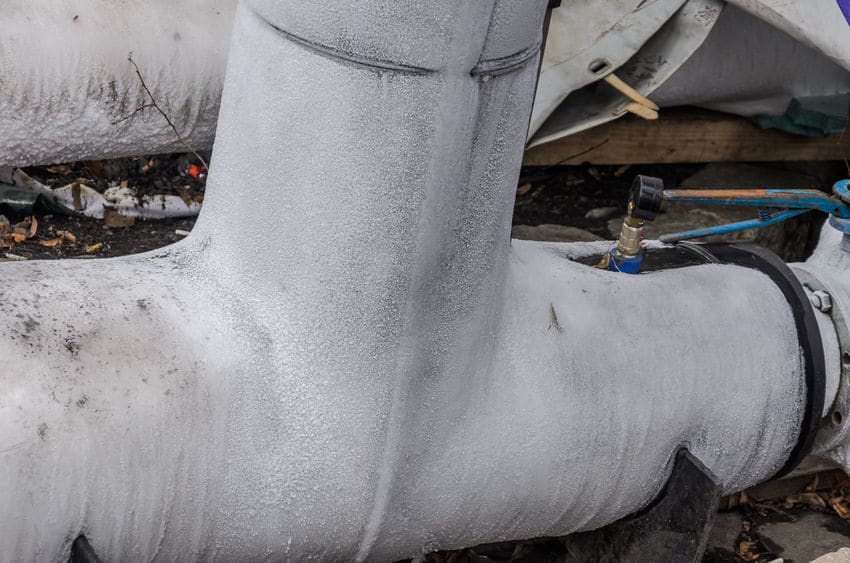One of the most common problems people have with their air conditioners is the ac freezing up. We encounter it frequently here in Tennessee, especially in the Spring and Summer when the weather starts to heat up. When the weather begins to heat up, people start to fire up their ac units to keep their homes and businesses cool and comfortable. As the air conditioner runs, many people will notice that it’s not cooling properly. When they go outside to inspect their air conditioner, they notice ice on the air conditioner pipe.
How Do You Know if Your AC is Frozen?
The first sign that your ac is frozen is a lack of cool air being supplied in your home. If your ac doesn’t seem to be cooling like your are accustomed to, your ac unit could definitely be frozen. Go outside and inspect the outside unit. If your ac unit is frozen, you should notice ice built up on the piping or any other part of your outside ac unit.
What to Do When Your AC Freezes Up
If you notice that you air conditioner is frozen, the first thing you want to do is turn it off. A frozen air conditioner that is left running can cause unnecessary stress and damage to the ac compressor. And believe me, you don’t want that. The ac compressor is the most expensive component in an ac unit and you don’t want to have to replace it.
Related: How to tell if your ac compressor is bad
Once you turn off your air conditioner, go ahead and call your local ac repair service. There is reason for your ac freezing up and you definitely want to get it fixed. An ac repair technician can come out and troubleshoot the problem, pin point the cause, and fix it so that your ac doesn’t continue to freeze over.
How to Thaw or Unfreeze a Frozen Air Conditioner
Once you have the ac unit turned off and you have called for an ac repair technician, you can simply let the ac thaw. This can take some time depending on the temperature outside, so be prepared to spend up to a day allowing it to thaw. I know that this can be torture if it’s hot outside, but it’s necessary. You don’t want to try to run a frozen ac unit.
Tip: If you’d like to speed up the thawing process, turn on the blower and let the fan run. The blower will blow air over the frozen ac coils and should speed up the thawing process. This will require you to turn the power back on for your ac unit so make sure to only run the fan portion of your unit. You can activate the fan only on your thermostat. If you don’t feel comfortable doing this, let the ac repair technician handle it when they arrive.
Why Does an AC Freeze Up?
When an air conditioner freezes up it’s typically due to the ac evaporator coil not getting the proper airflow. The evaporator coil is located in the outside unit and contains very cold refrigerant. The refrigerant can reach temperatures as low as 10 degrees Fahrenheit and if there isn’t the proper amount of warm air flowing over the coils, they will freeze over. This threat is multiplied even further if you live in a humid climate like we do in Jackson TN.
So, as you can see, one of the main causes of an ac freezing up is a lack of airflow. The main causes include:
1) A Refrigerant Leak
If your ac keeps freezing and your air conditioner is continually low on refrigerant, then it has a refrigerant leak. If you air conditioner is leaking refrigerant, then the refrigerant’s pressure level is going to be off. When the pressure level of the refrigerant isn’t where it needs to be, it can cause the refrigerant to get too cold too quickly and ice over in the coils.
2) A Dirty or Clogged Air Filter
A dirty air filter obstructs airflow within the ac unit. Without proper airflow, the refrigerant in the evaporator coil can become too cold (below freezing) and freeze over. A clean and unobstructed air filter also helps prevent many other ac problems as well.

Other causes of a lack of airflow can be a bad blower motor or a blocked or disconnected duct among other things.
3) A Dirty or Clogged Evaporator Coil
Dirt and dust that builds up on the evaporator coil can act like an insulator and cause the coils in your ac to freeze up. The excessive dirt and dust combined with the moisture from the climate creates a blanket effect on the coils which multiplies the temperature within the coils.
How to Keep Your AC from Freezing Up
None of us want to encounter a frozen air conditioner. We want to avoid having to request ac repair service, right? So how do we prevent it?
1) Replace the Air Filter Every 3 Months at a Minimum
A dirty or clogged air filter is one of the leading causes of all kinds of malfunctions with air conditioners. A frozen ac unit is just one of them. A dirty air filter can cause obstructed airflow which hinders certain components from receiving the airflow that they need. A lack of airflow, as we’ve already covered, is the main culprit of a frozen ac unit.
2) Clean the Evaporator Coil or Have It Cleaned by a Professional
To operate properly, the evaporator coil needs to be free from excessive dirt and debris. Cleaning the evaporator coil on a regular basis (at least twice a year) will allow it to operate at its peak ability.
3) Have Regular Preventive Maintenance Performed on Your AC Unit – at Least Twice a Year
Lastly, having regular preventive maintenance performed on your air conditioner is the best thing you can do if you want to keep your air conditioner from freezing up. On a typical maintenance visit, a HVAC service company will inspect your air filter, clean the evaporator coil, check the refrigerant levels, plus much more.
Wrapping It Up
A frozen air conditioner is one of the most common problems we find with air conditioners, especially in the Spring and Summer months. If this happens to you, remember that it’s a symptom of a deeper problem. By turning off your ac unit and getting an ac technician out to troubleshoot the issue, you are preventing any further damage from occurring. To help prevent your ac from freezing up, change your air filter on a regular basis and have preventive maintenance performed on your unit at least twice a year by a professional.



